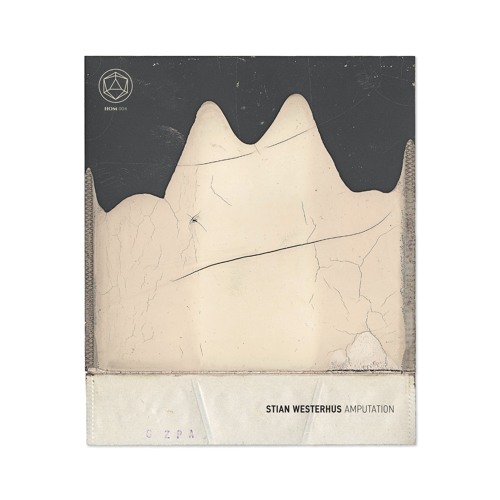I wonder when Stian Westerhus discovered his voice, and then how long he kept it secret for? Up until a couple of years ago, he was predominantly seen as an avant-jazz guitar player pushing at the boundaries of music and noise. But in 2014, he formed the band Pale Horses and released the remarkable Maelstrom, an electronic rock album that channelled Amnesiac-era Radiohead, along with the likes of The Blue Nile, Talk Talk and Scott Walker. Yet the most surprising aspect of this new project was the appearance of Westerhus’ wonderful, no-holds-barred singing voice. How could he have kept it under wraps for so long, and why?
Thankfully, his voice returns on his latest solo album, Amputation, which in many ways is a continuation of the sound universe of Maelstrom — albeit more stripped back and mostly beat-less. His voice also sounds more exposed and bereft than ever, audibly testing the limits of his considerable range, as befits an album with such a hardcore, visceral title. “Amputation” is a word that speaks of fundamental corporeal distress, an apocalyptic blow to the body. It’s an album loaded with moments of stark beauty, but the whole feels scratched and broken. As Westerhus himself says, “It’s music I’ve dropped to the floor repeatedly, maybe even on purpose.”
‘Kings Never Sleep’ is a negative space of cut-ups and glitchy digitalia. Westerhus’ voice is clear and strong, but his vocal melody is tentative, as though trying to pick a way through the sonic detritus. Like all singers, he’s a human trapped inside a machine, but the machine is on its last legs, all static trills and metallic shrieks. There’s a frantic rewinding of tape, an attempt to return to a back-up that no longer exists, then a strange kind of manipulated feedback solo. The sound should be unbearable, but it’s filled with an indefinable sense of sadness. This is a song to the siren from the ruins of a world about to run out of battery for good.
‘Sinking Ships’ is a fractured sea shanty, the faint sonar bleep of its opening slowly subsumed by shards of first aqueous, then cello-like, guitar. But just as we might start to feel a little set adrift, ‘How Long’ delivers something akin to a traditional melodic structure, Westerhus’ voice hitting an angelic falsetto, his instincts to give us something to hold onto, even as he keeps returning to the aching refrain of “I never wanted to know.” An oppressive rhythm track with thick bass stabs is assailed by a devil’s orchestra of processed strings, but it’s almost shocking when we hear a fleeting snatch of untreated guitar towards the end.
‘Amputation’ itself begins in suitably brutal fashion, a mechanical hammer crushing dead media in a wrecking yard, but it’s gradually subdued by a wordless celestial vocal. Westerhus sings, “I’ve been searching for my higher ground”, and of an “Amputation of true belief”, like a man undergoing a devastating spiritual crisis, and the album’s desolate, end-of-the-world feeling starts to make sense now. There’s something confrontational about the nakedness of his voice – it would be almost uncomfortable to listen to if it wasn’t so pure and unaffected.
Despite its title, ‘Infectious Decay’ is almost a traditional tune in this context, a spooked Radiohead-esque ballad seeking redemption. Its ascending lyric melody pushes him to the edge of his range until his voice finally cracks on “There’s nowhere for me to sleep tonight.” Finally, ‘Amputation part II’ rises Terminator-like from a heap of smashed screens and burnt-out motherboards, but its savage silicon heart is soothed by some gentle chords. Just as HAL in 2001: A Space Odyssey sings ‘Daisy Daisy’, the first song it learnt, before its mind goes completely, the album ends in an abrasive loop, the machine playing Pong with itself in its final death throes.
With Amputation, Stian Westerhus has shown himself once again to be a man obsessed with the possibilities of noise and melody, the vulnerability of the artificial versus the indomitable spirit of the flesh. It’s a tone poem for a post-technological age, but more importantly, it’s a difficult album that’s strangely easy to listen to.



